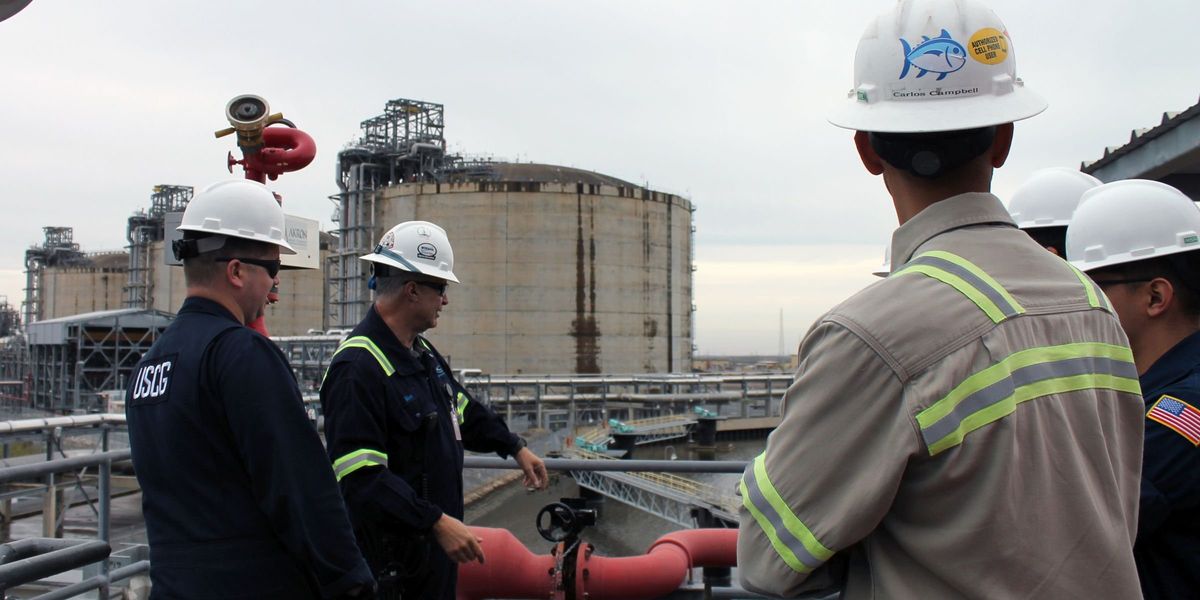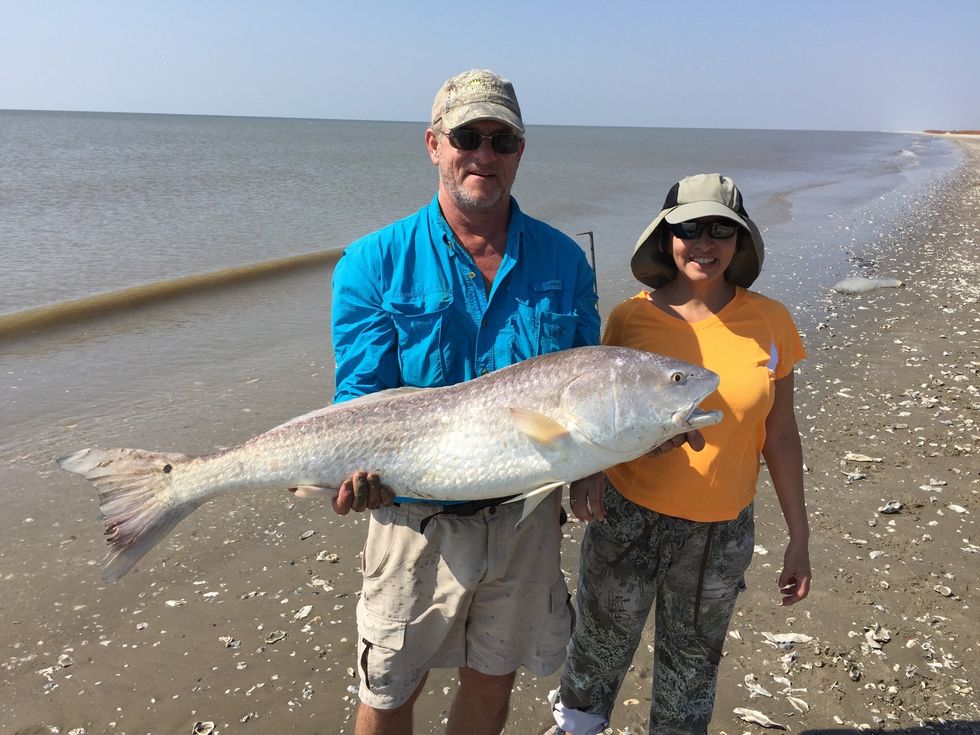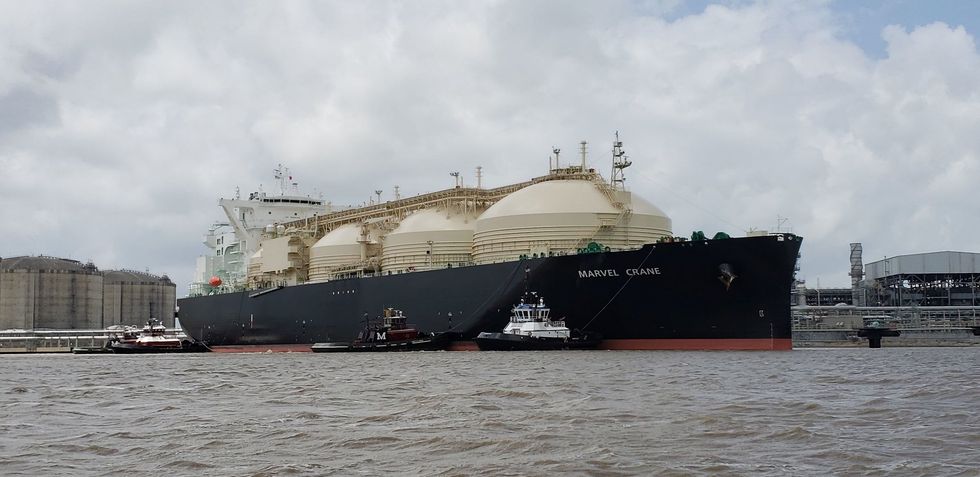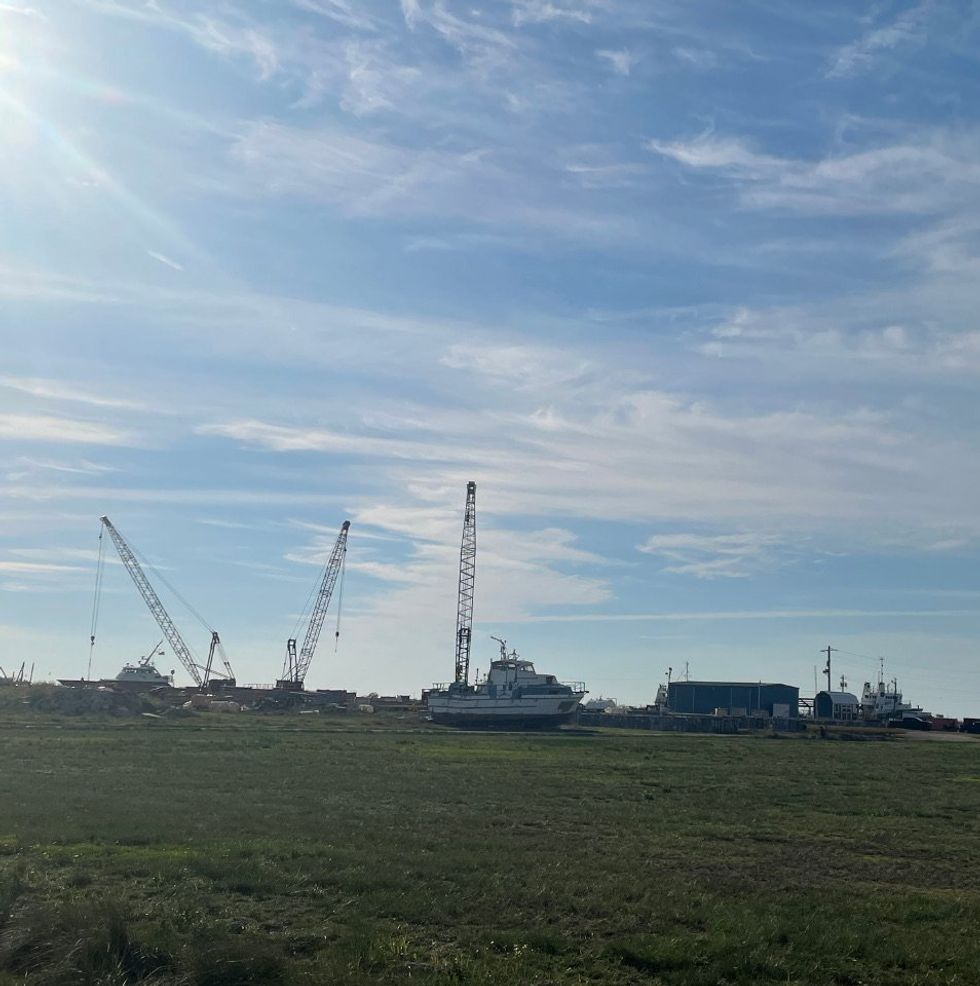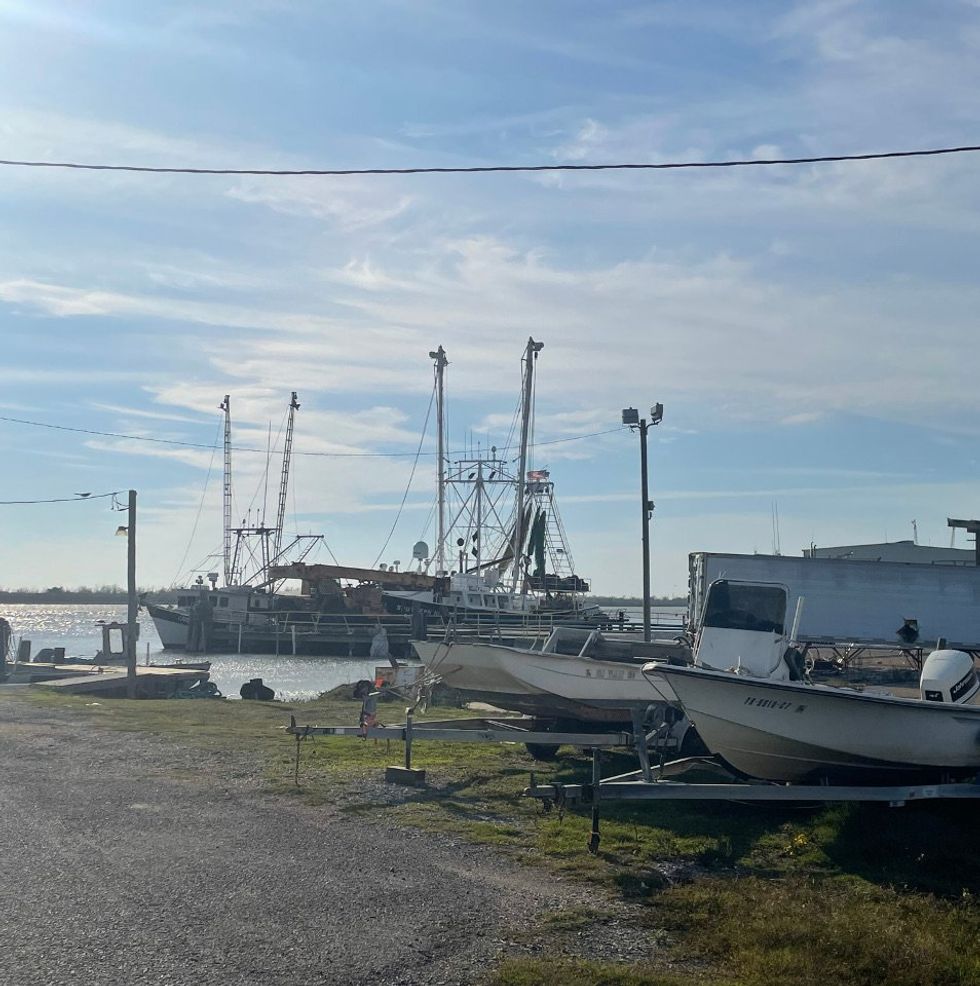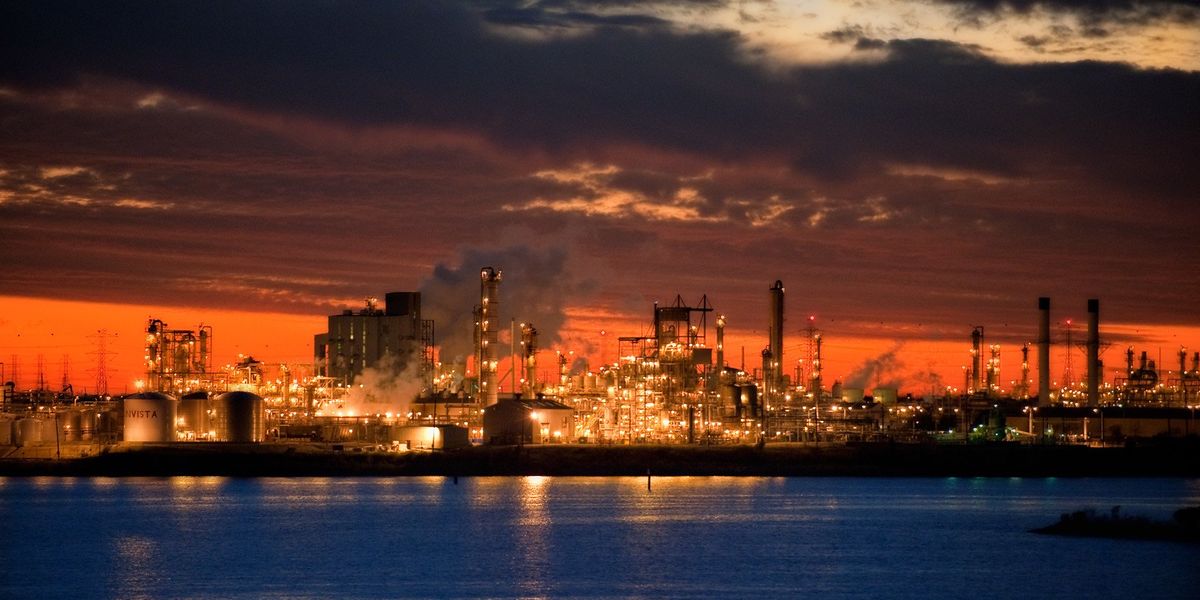
Lives “devastated’ by petrochemical industry pollution in Texas: Report
New analysis illustrates the climate, environmental, and human rights tolls linked to petrochemical production surrounding the Houston Ship Channel region.
Toxic pollution from the petrochemical industry along the Houston Ship Channel in Texas is causing “devastating harms” to local communities, according to a new report by international human rights advocacy group Amnesty International.
The report underscores the climate, environmental, and human rights tolls linked to petrochemical production, adding to the ongoing controversy surrounding the practices of the U.S. fossil fuel industry.
Home to the largest petrochemical industrial complex in the U.S., the Houston Ship Channel — a 52-mile waterway that stretches from the Gulf of Mexico to Houston — is encompassed by hundreds of industrial plants that convert oil and gas into chemical building blocks that can be further processed into products such as plastics, fertilizer and pesticides.
Meanwhile, the so-called fenceline communities — which are often predominantly Black, brown, and low-income — live in close proximity to the plants, becoming the frontline to absorb the harmful impacts caused by petrochemical production, the report noted.
According to Houston city data, for instance, 86% of residents in Houston’s Harrisburg/Manchester neighborhood, which is adjacent to the ship channel and a Valero refinery, were Hispanic in 2019, with 41% of the residents having a household income of less than $25,000. The primary language for 76% of the residents was Spanish.
To evaluate the petrochemical industry's impact, Amnesty International interviewed more than a dozen experts and 29 residents who have lived, worked, or attended school within a three-mile radius of a petrochemical facility along the Houston Ship Channel. The organization also reviewed documents provided by interviewees, studies, corporate disclosure, case law, as well as enforcement and compliance data.
They found elevated pollution and illness near the industrial footprint, thousands of air and water pollution violations by some of the major companies along the Ship Channel over the past decades, and a lack of environmental enforcement by state and federal agencies.
The report concluded that petrochemical companies’ “irresponsible operating practices” infringed several human rights of the local communities, including the right to health, the right to a clean environment, the right access to information, and the right to participation in decision-making.
The report zeroed in on three large companies operating in the Ship Channel. Three would not comment on the report. The fourth, LyondellBasell, told Environmental Health News (EHN) through a spokesperson that the company follows all local, state and federal regulations when it comes to air and water pollution.
“We opted to look at a community in the United States where the racialized distribution of the human rights violations associated with petrochemical production is very clear,” Marta Schaaf, director of the programme on climate, economic and social Justice, and corporate accountability at Amnesty International, told Environmental Health News (EHN). “We felt like documenting exactly how things are playing out — and how they should ideally be addressed was also a human rights priority.”
Petrochemical industry health impacts
Residents from eight fenceline communities said that they were perpetually impacted by air, water, light, noise, and odor pollution.
Common petrochemical pollutants include PM2.5, benzene, 1,3-butadiene, formaldehyde, ethylene oxide, nitrous oxides, and ground-level ozone, the report noted, which are all associated with adverse health effects.
Moreover, the report documented a series of adverse health outcomes – such as cancers, respiratory issues, cardiovascular disease, and reproductive complications – experienced by fenceline communities that are suspected to be linked to petrochemical pollutants.
A 2019 analysis by the Texas Department of State Health Services, for instance, found that the rates for lung and bronchus, esophagus, and larynx cancers in several neighborhoods in the Houston area were “statistically significantly greater than expected” compared to the rest of Texas.
According to Amnesty International, 15 out of 29 of the residents interviewed for the report said that they or a close family member had been diagnosed with a respiratory disease, had a chronic cough, or frequently experienced breathing difficulties. Beyond the physical harms, petrochemical production’s environmental hazards also impact the community members’ mental health, the report noted.
Petrochemical industry non-compliance
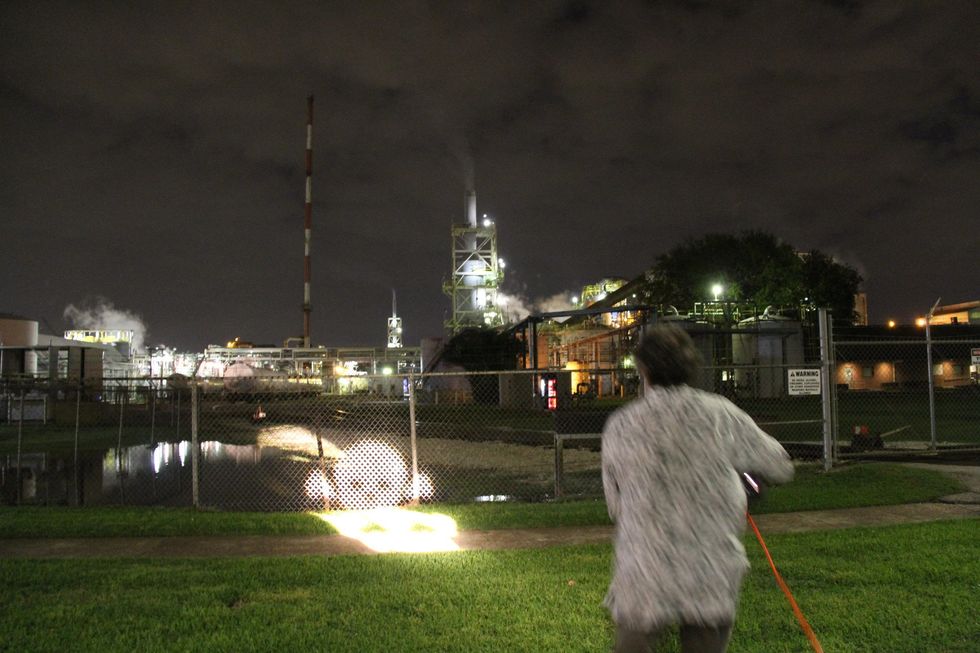
A 2017 "toxic tour" along the Houston Ship Channel. In the new report, residents from eight fenceline communities said that they were perpetually impacted by air, water, light, noise, and odor pollution.
Credit: Backbone Campaign/flickr
Amnesty International also conducted case studies on four major companies along the Houston Ship Channel — ExxonMobil Baytown Complex, LyondellBasell Channelview Complex, Shell Chemicals Deer Park, and Intercontinental Terminals Company (ITC) Deer Park — and found “a history of repeated non-compliance with clean air and water regulations” of these companies.
The report analyzed TCEQ records and showed that, in the past two decades, ExxonMobil Baytown Complex had 1,013 air pollution violations, 77 occurring since 2020. ITC Deer Park, which is owned by Mitsui & Co., had 49 air pollution violations in the last 20 years, including 10 since 2020. The number of air pollution violations for LyondellBasell Channelview Complex was 463, including 61 since 2020. Shell Chemicals Deer Park had 790 air pollution violations for the last two decades, including 19 since 2020.
“We felt like documenting exactly how things are playing out — and how they should ideally be addressed was also a human rights priority.” - Marta Schaaf, Amnesty International
Three of the facilities – the ExxonMobil Baytown Complex, Shell Deer Park Chemicals, and ITC Deer Park – have experienced “high-profile” disasters, such as fires and explosions, over the past five years, illustrating the heightened risk of safety and environmental harms from the petrochemical industry, the report noted.
In an email statement, a LyondellBasell spokesperson told EHN that the company “compl[ies] with all relevant local, regional, and national environmental regulations and are dedicated to conducting our business in a manner that protects the environment and provides for the safety and health of our employees, contractors, customers, and the public.”
Shell declined to comment on the allegations mentioned in the report before it is publicly available while ExxonMobil and ITC did not respond to requests for comment.
"Consistent flouting” of the regulations
Despite the harms posed by the petrochemical industry, the report also noted the lack of adequate enforcement and oversight from local and state regulators.
“We found a consistent flouting of the already inadequate regulations,” Schaaf said. “There's a lot of space between what the rules are in paper and how they are actually followed.”
For instance, a recent review of the TCEQ by the Texas Sunset Advisory Commission, part of the Texas Legislature that periodically audits state agencies, concluded that TCEQ’s compliance monitoring and enforcement processes “need improvements to more effectively discourage violations and focus on the riskiest actors.”
Furthermore, Schaaf said a “jaw-dropping” finding from the report is that companies can dodge penalties for pollution violations by invoking the so-called "affirmative defense" — a legal loophole in Texas that waives air pollution enforcement for a company if it reports the pollution event as “unplanned and unavoidable”.
“There's a lot of space between what the rules are in paper and how they are actually followed.”- Marta Schaaf, Amnesty International
An analysis by the Sunset Commission found that the TCEQ granted the affirmative defense in more than 85% of unauthorized emissions events from 2017 to 2021, the report noted.
The TCEQ told EHN it does not comment on reports the agency hasn’t yet reviewed. We will update the story if they respond.
Documenting the harms of the petrochemical industry
The findings presented in the report mirror the perils of the petrochemical industry elsewhere in the U.S. On Thursday, New York City-based advocacy group Human Rights Watch issued a similar report that focuses on the health and environmental crisis in Louisiana’s “Cancer Alley” linked to the petrochemical industry.
Drawing from the findings of its report, Amnesty International is urging regulators, on both the federal and state levels, to proactively hold polluters accountable while halting further expansion of the petrochemical industry to mitigate the environmental injustices experienced by the fenceline communities.
“I think the key point is that the U.S. is a major player in the fossil fuel industry,” Schaaf said. “We want to make sure that we are documenting the harms of that engagement — the harms to the climate, the harms to the environment, and the harms to human rights.”



